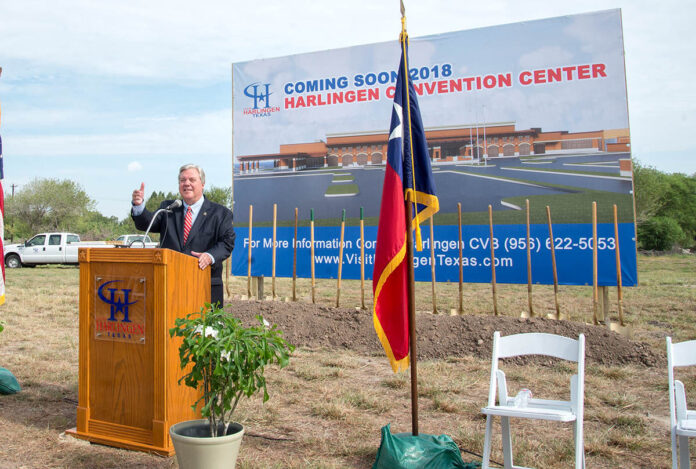HARLINGEN — The city isn’t banking on the $16.7 million convention center turning a profit during its first year of operation.
So it is building a $500,000 nest egg to help fund the facility’s operation during the so-called “ramp-up” period.
The city reviewed projected costs at the time it developed an agreement with San Antonio-based developer BC Lynd Hospitality, Mayor Chris Boswell said yesterday.
Tonight, Brandon Rainey, BC Lynd’s chief executive officer, is expected to present city commissioners with projections on the convention center’s operating costs, City Manager Dan Serna said in a meeting last month.
Serna said Rainey is also preparing the rental rates to be used to book the convention center.
Next, officials will work to prepare the convention center’s budget, Serna said.
Under an agreement, the city and BC Lynd will split profits as well as the cost of funding any deficit.
“We don’t anticipate the first year breaking even,” Boswell said yesterday. “That’s why we have the developer assuming risk with us.”
The city’s agreement with BC Lynd calls for a $500,000 “cushion” to help fund the convention center during the first year of operation, Boswell said.
“As a condition of (the developer) agreeing to share in operating deficits that may exist from time to time relating to the operation of the convention center, (the) city agrees that it shall capitalize in the overall convention center development budget a source of funds as working capital in an amount of $500,000 intended to be used during the operational ramp-up period of two years following the completion of the convention center,” the agreement signed in December 2015 states.
How we got here
As part of a public-private partnership, the city will fund construction of the 44,436-square-foot convention center while BC Lynd builds an attached 150-room Hilton Garden Inn on an adjacent two-acre site at Teege Avenue and Brazil Road.
The agreement calls for BC Lynd or an affiliate to operate and manage the convention center for an initial 10-year term, with renewal options, paying operation and maintenance costs.
As part of its finance plan, the city used $9.7 million generated through the Harlingen Community Improvement Board’s sales tax and $3.8 million in hotel occupancy tax revenue to pay off the debt.
The city also used $1.96 million from property tax revenue generated through Harlingen’s three tax increment financing reinvestment zones to buy the convention center’s eight-acre site.
The Community Improvement Board funded the remaining $800,000 of the land purchase.
Projected revenues
Operating costs
Rental fees





